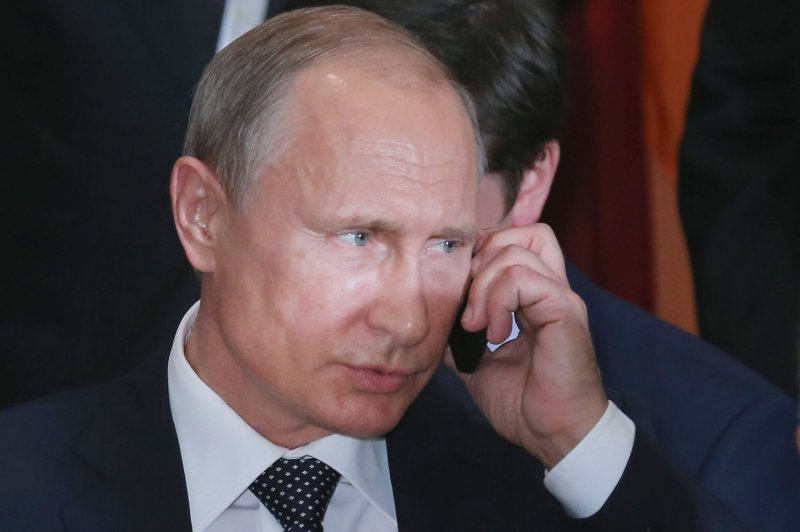A report by the European Bank for Reconstruction and Development finds that Russian sanctions could result in a 0.7 percent drop in Turkey's GDP, but will also hurt Russian companies like Gazprom, which gets 20 percent of its revenue from exports to Turkey. Pool Photo by Chip Somodevilla/UPI |
License Photo
LONDON, Dec. 7 (UPI) -- Sanctions imposed by Moscow will have minor impacts on the Turkish economy, though there may be an energy-related backlash for Russia, a European report finds.
The Kremlin has tightened sanctions on Turkey as military reactions to the group calling itself the Islamic State escalate. Tensions mounted when a Turkish fighter shot down a Russian Su-24 fighter jet near the Syrian border last month.
A report from the European Bank for Reconstruction and Development finds sanctions may reduce growth for the Turkish gross domestic product by up to 0.7 percentage points, though Russia will not be isolated by the sanctions impact.
"Friction between Turkey and Russia has been escalating after a recent military incident, putting under pressure economic ties between the two countries," the bank said.
Turkey is one of Russia's largest energy consumers, relying on Russian suppliers for more than half of its natural gas supplies. The $16.5 billion spent on oil and gas imports from Russia last year accounts for 30 percent of Turkey's total energy bill.
The EBRD, which has headquarters in London, said many of the specific sanctions have been "carefully chosen" so as not to impact some current bilateral economic activity. Last year, Russia was the fourth-largest foreign direct investor in Turkey.
On energy exports specifically, the bank said any disruption from Russia would have a negative impact on Russian GDP. Energy exports to Turkey last year represented about 0.6 percent of Russia's total GDP and nearly 20 percent of the revenue for Russian energy company Gazprom.
"Any disruption to this supply in 2016, which appears very unlikely at this stage, would harm Russia's exports and GDP," the bank said.
Russian officials last week said talks were suspended over a bilateral natural gas project dubbed Turkish Stream, a scaled-back version of a gas pipeline through Turkey and onto southern European markets.















